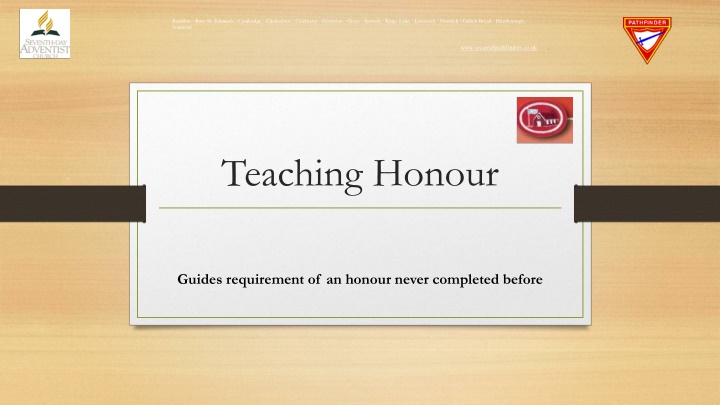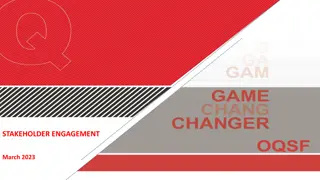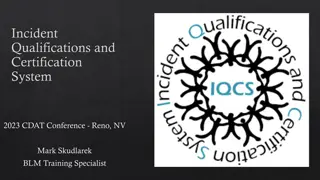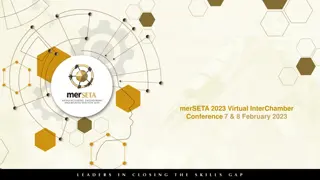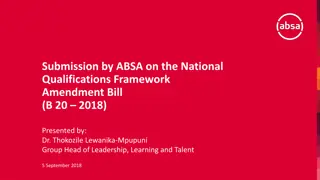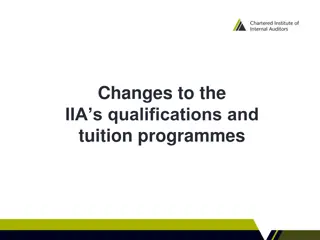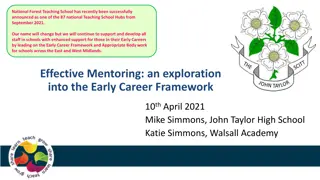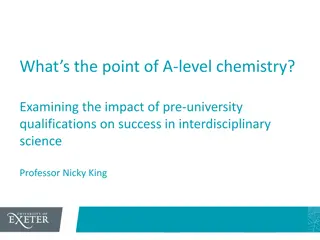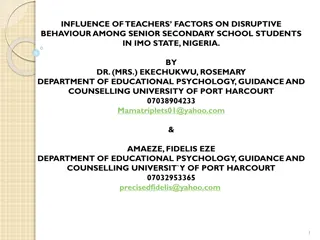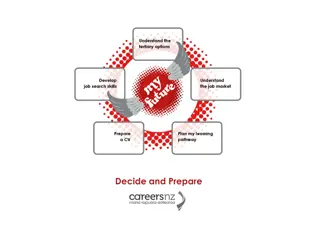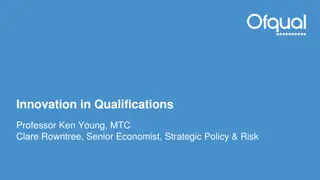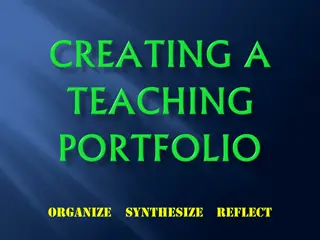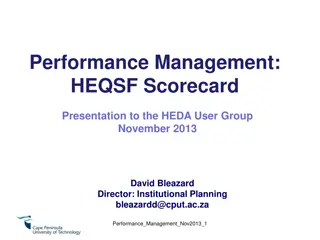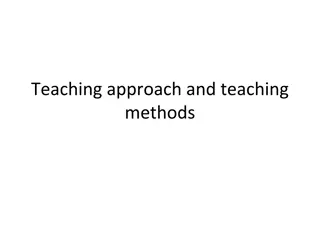Teaching Qualifications and School Experience
To become a teacher in England, understanding the required education levels, qualifications, and the significance of school experience are essential. Learn how to prepare for a teaching career and the steps to acquire the necessary skills and certifications.
Uploaded on Mar 20, 2025 | 2 Views
Download Presentation

Please find below an Image/Link to download the presentation.
The content on the website is provided AS IS for your information and personal use only. It may not be sold, licensed, or shared on other websites without obtaining consent from the author.If you encounter any issues during the download, it is possible that the publisher has removed the file from their server.
You are allowed to download the files provided on this website for personal or commercial use, subject to the condition that they are used lawfully. All files are the property of their respective owners.
The content on the website is provided AS IS for your information and personal use only. It may not be sold, licensed, or shared on other websites without obtaining consent from the author.
E N D
Presentation Transcript
Basildon Bury St. Edmunds Cambridge Chelmsford Colchester Gorleston Grays Ipswich Kings Lynn Lowestoft Norwich Oulton Broad Peterborough Southend www.secarea8pathfinders.co.uk . Teaching Honour Guides requirement of an honour never completed before
Learning outcome Discuss and complete the requirements of the teaching honour.
Resources Computer Or phone Worksheet
Check in Describe yourself in 3 words
How much do you know about Education Quizlet-Type quizlet.com Enter the game pin
1. What education is needed for teaching the following: a. Primary school b. Secondary school To teach in a state school in England, you must have a degree, and gain Qualified Teacher Status (QTS) by following a programme of Initial Teacher Training (ITT). You must have achieved minimum requirements in GCSE English, maths, and science if you wish to teach at primary- level A degree of a 2:2 or above, qualified teacher status (QTS) and relevant school experience are required to teach in state schools in the UK. Some schools, such as private schools and academies, are able to recruit teachers without a degree but it's then difficult to progress or move schools.
1. What education is needed for teaching the following: a. Primary school b. Secondary school If you can spend some time observing and helping out with lessons in a local school before you apply, it will help to strengthen your application. You can use the experience in your personal statement, showing what you ve gained from it and how it s increased your motivation to be a teacher. There are several ways you can get school experience: You can register with Get Into Teaching and search for participating schools in your area via the Get School Experience service. https://www.ucas.com/connect/videos/ucas/teacher- training?v=/arranging-school-experience-independently Alternatively, you can arrange school experience independently. If you re not sure where to begin, the Get Into Teaching website has lots of tips to help you get started. If you have a criminal record, it won t necessarily prevent you becoming a teacher. You ll need to disclose any criminal convictions, cautions, or bind-overs that are not filtered, and you ll need to agree to an enhanced criminal record check. We also advise you to discuss your circumstances with training providers before you apply
1. What education is needed for teaching the following: c. What qualifications do I need to teach in college or University? You will be expected to already hold a minimum of a Level 3 qualification in the subject area you wish to teach. You will also need a teaching qualification that is relevant to the level of teaching responsibility that you have in your job. Employers are free to set their own entry requirements. You'll need a good degree in a subject that's relevant to what you want to lecture in in University. For almost all disciplines, you'll also need a PhD in a related area. For more vocational courses you'll usually need several years' experience of working in the relevant field, as well as a degree or professional qualification
2. What is QTS? Qualified Teacher Status (QTS) is a professional qualification awarded by the National College of Teaching and Leadership (NCTL) when a person can prove that they meet all of the Teachers Standards and criteria. QTS is required in England to teach in a state school that is under local authority control and in special schools. It is most commonly gained alongside or as part of a Postgraduate Certificate in Education (PGCE) qualification, but it can also be awarded on its own. QTS is recognised in some countries outside of England and Wales, but if you are thinking of teaching abroad once qualified then it is always worth checking with the department for education of a particular country that you intend to teach in. In order gain QTS, you will need to have an undergraduate degree and GCSEs of level 4/grade C or above in Maths and English (you will also need grade C in Science if you plan to teach at a Primary level). You will need to pass the Professional Skills Tests in Numeracy and Literacy as well
3. Interview at least two teachers/Counsellors with the following questions a. Why did you choose to become a teacher? b. What part of teaching do you like the best? c. What part of teaching do you like the least? d. What do you do to get ready for a school year? e. What do you do to get ready for a school day? f. What teacher-related activities do you do after school is out each day? g. What are some qualities of a good teacher? h. What are the responsibilities and duties of a teacher?
3. Interview at least two teachers/Counsellors with the following questions Teachers love to tell stories, and love to spend time with people... be prepared to listen! Because teachers love people, they often have a hard time saying "no" or "could we do the interview later?" even when they are really busy and have lots of demands on their time. So, be polite and alert to what might be going on in the teacher's life and try to find a time not too near test week, a holiday, or the beginning or end of a term. Take good notes. Teachers love to see that you care enough to write it down! If your selected teacher is okay with it, record your interview on an audio or video device. This will allow you to go back and "review" what you've learned from the interview. Don't limit yourself to this list of interview questions. Get your heart involved in the interview, and learn what you can about the teacher and what it is like to be one. This is a special one-on-one opportunity you have with a special person. Make the most of it!
4. Explore the Bible and the book Education by Ellen G. White to learn what teaching methods Jesus used. Present a three-minute oral report on what you learned. The Bible can be searched online at http://www.biblegateway.com . The Ellen White writings can be viewed and searched online at http://www.whiteestate.org/search/search.asp
4. Explore the Bible and the book Education by Ellen G. White to learn what teaching methods Jesus used. Present a three-minute oral report on what you learned. Jesus was the master teacher. Thousands would gather to hang on his every word. People traveled far and wide just to hear him. The lessons he taught spread like fire and literally changed the world. JESUS SPOKE BY HIS AUTHORITY Other teachers quoted credible teachers or teachings to borrow authority. Jesus, on the other hand, boldly declared, You have heard this, but I tell you (Matthew 5:22, 28, 32, 34, 39, 44). The crowds were amazed because He taught as one who had authority, unlike other teachers (Mark 1:22). Application: We cannot preach on our authority, but that s OK. Jesus gives us his. Preach the Word. Our power and authority come from Christ alone.
4. Explore the Bible and the book Education by Ellen G. White to learn what teaching methods Jesus used. Present a three-minute oral report on what you learned. JESUS TOLD STORIES As you are aware, Jesus told countless parables. He pulled spiritual truths from everyday life. Not only did these stories make his teaching more memorable, they also connected in a much more profound way.
4. Explore the Bible and the book Education by Ellen G. White to learn what teaching methods Jesus used. Present a three-minute oral report on what you learned. JESUS ASKED QUESTIONS Rather than just tell everyone the answer, Jesus led his listeners to conclusions by asking a lot of questions. For examples see Matthew 16:26, or 22:20-21, and check out this cool resource: 173 Questions Jesus Asked. Questions are a powerful teaching method, especially when teaching to hostile people (like unbelievers). Questions stimulate critical thinking. Good questions make the audience demand answers. Application: Ask a lot of questions. Don t underestimate the power of a good question.
4. Explore the Bible and the book Education by Ellen G. White to learn what teaching methods Jesus used. Present a three-minute oral report on what you learned. JESUS ASKED QUESTIONS Rather than just tell everyone the answer, Jesus led his listeners to conclusions by asking a lot of questions. For examples see Matthew 16:26, or 22:20-21, and check out this cool resource: 173 Questions Jesus Asked. Questions are a powerful teaching method, especially when teaching to hostile people (like unbelievers). Questions stimulate critical thinking. Good questions make the audience demand answers. Application: Ask a lot of questions. Don t underestimate the power of a good question.
4. Explore the Bible and the book Education by Ellen G. White to learn what teaching methods Jesus used. Present a three-minute oral report on what you learned. JESUS USED VISUAL ILLUSTRATIONS Jesus often used object lessons to communicate concrete truth to his listeners. He washed the feet of the disciples to teach servant leadership (John 13:3 17). He called a little child to him to discuss childlike faith (Matthew 18:1 4). He described unselfish giving after watching a widow drop two small coins into the temple offering (Mark 12:41 44). When he told the parable of the sower, there is a good chance he was standing near a field. Visually communicated truth is far more powerful than only spoken truth Application: Use objects and visual illustrations. Block out time to be creative and think of ways to communicate your message visually.
4. Explore the Bible and the book Education by Ellen G. White to learn what teaching methods Jesus used. Present a three-minute oral report on what you learned. JESUS USED VISUAL ILLUSTRATIONS Jesus often used object lessons to communicate concrete truth to his listeners. He washed the feet of the disciples to teach servant leadership (John 13:3 17). He called a little child to him to discuss childlike faith (Matthew 18:1 4). He described unselfish giving after watching a widow drop two small coins into the temple offering (Mark 12:41 44). When he told the parable of the sower, there is a good chance he was standing near a field. Visually communicated truth is far more powerful than only spoken truth Application: Use objects and visual illustrations. Block out time to be creative and think of ways to communicate your message visually.
4. Explore the Bible and the book Education by Ellen G. White to learn what teaching methods Jesus used. Present a three-minute oral report on what you learned. JESUS PRACTICED WHAT HE PREACHED There is no greater example of a preacher following his own teachings than Jesus. Jesus didn t just teach on prayer; he often withdrew to pray (Luke 5:16). Jesus lived what he said. He didn t just talk a good talk, he walked the walk, even through death on a cross. Application: Practice what you preach. The greatest lessons we teach come from our lives, not our mouths.
5. Do the following for a minimum of 40 minutes per week for three weeks. (3 sessions) a. Assist a counsellor in designing and preparing an advert/bulletin board/announcements. b. Assist a counsellor in preparing teaching resources. c. With the supervision of a counsellor, teach a child or sabbath school/Adventurer/Pathfinder class at least one concept.
4. Explore the Bible and the book Education by Ellen G. White to learn what teaching methods Jesus used. Present a three-minute oral report on what you learned. CONCLUSION If you want to be an effective preacher or teacher, model your methods after Jesus. Preach the Word, tell stories, be shocking, craft sticky statements, use object lessons, repeat yourself, create experiences and practice what you preach.
Planning Time Plan the resources, Starter, Main activities that are inclusive of visual, auditory and kinaesthetic learners. Discuss with your mentors when you can deliver this, sabbath school, children story, adventurers or pathfinder class etc. Your plan and photos of you teaching to be in your folder as evidence and counsellor will date and sign when you have completed your 3 sessions. Best wishes!
